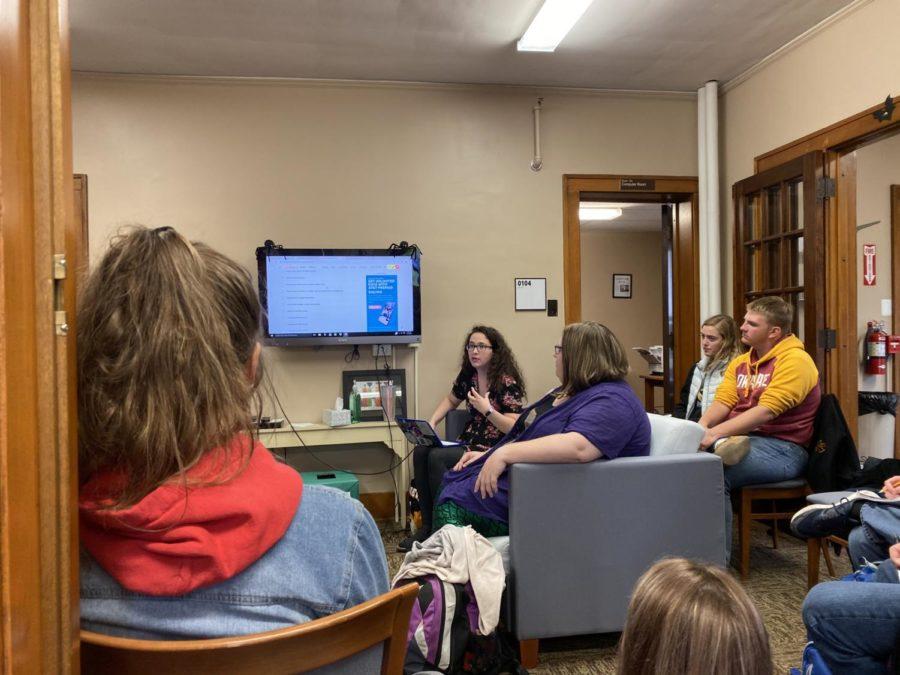Feminist Friday focuses on the “othering” society places on minorities
Loretta McGraw/ Iowa State Daily
Chloe Clark, assistant teaching professor English, led this week’s packed Feminist Friday discussion on monstering and othering applied to the horror genre and in the language we use towards individuals and groups of people.
November 1, 2019
At this week’s Feminist Friday, students, facility and community members crammed into the Margaret Sloss Center for Women and Gender Equity for the weekly talk.
This talk was presented by Chloe Clark, assistant professor of English. There was an assortment of snacks for attendees as well as a discussion on “Our Monsters, Our Selves: How We Can Think about Privilege and Othering through Monstrosity.”
“Othering” occurs when people judge or discriminate against groups or individuals outside of their price or class, Clark said. Every person is assigned a certain amount of privilege dependent their on race, sexual orientation, gender identities, the sexual violence or harassment they are subjected to, the privileges awarded to them in terms of tuition funds or vehicular availability, physical or mental illnesses, and even down to the parental upbringing one experienced.
Othering is a common practice in American society when people take a look at the behaviors they broadcast or the associations and terminology they label people, to place them outside of the norms, Clark said.
Clark discussed the term “illegal immigrant,” and said it has a negative connotation and people have been force-fed information to imply “illegal immigrants” are by nature criminals in order to justify separating kids from their families at the border. When in reality “illegal immigrants” are just a migration of people into a country violating immigration laws in times of urgency relating to their safety and survival.
In Clark’s English 250 course, she instructs students into taking a closer examination of just how much “monstering”, similar to othering, affects people’s lives. She provides them the opportunity to come up with a common occurrence in society that monsters others to teach to the class. In horror, another topic of discussion in the course, comparisons are made in the movie genre on where the origin of common monsters arise from. In the case of the 1980s, there was a huge rise in vampire films out of a fear of the Acquired Immune Deficiency Syndrome (AIDS) epidemic.
Clark said by taking this privilege for granted, society is failing to support those with the least amount of privilege which tend to first be woman and those of other races while teaching these behaviors to our children too.
“When you’re thinking about the way that you are talking, you don’t have to think ‘Oh no, I am a terrible person because I accidentally othered this group’, instead just be cognizant that you did and then think about how you can do better the next time that you talk about it,” Clark said. “You shouldn’t feel guilty, you can’t change the way you were born, but you can use your privilege in productive ways.”

















